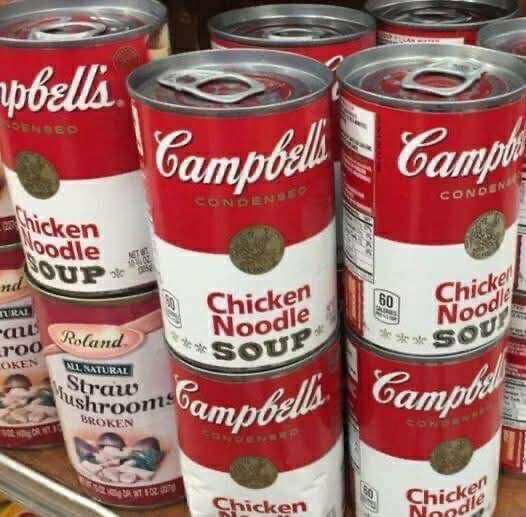Something unusual is brewing in the food industry, and it’s not in Campbell’s red-and-white cans. Whispers of financial strain, shareholder battles, and a declining appetite for processed foods have cast a shadow over one of America’s most beloved brands. Could the company that warmed kitchens for nearly two centuries be quietly preparing for a downfall? The signs are unsettling—and loyal fans might want to pay attention before it’s too late.

Campbell’s Soup, a household name in America for almost 200 years, is now facing one of the most difficult chapters in its history.
The company has been struggling to stay relevant as consumers increasingly prefer fresh, natural, and less-processed foods—an area far from Campbell’s traditional image. In an attempt to reinvent itself and expand into new markets, the company made several acquisitions, but these left it burdened with a massive $9 billion debt.
Adding to the turmoil, a bitter clash has erupted among its major stakeholders. The Dorrance family, who control about 40% of Campbell’s shares, have found themselves at odds with Daniel Loeb, a hedge fund manager holding 7% of the company through his firm Third Point. Loeb has been pressing for bold changes, including even rebranding the iconic red-and-white cans. His pushback led to a lawsuit accusing the company of mismanagement, sparking a very public corporate showdown.
Campbell’s dismissed Loeb’s proposals as “unoriginal and uninformed,” yet the pressure forced compromise.
In a recent move suggesting cracks in the resistance, Campbell’s agreed to add two board members recommended by Third Point. This signals that bigger changes may be coming as the brand scrambles to survive in a competitive, evolving food market.
The looming threat of closure carries heavy meaning—not only for Campbell’s loyal customer base but also for the broader food industry. For many families, the brand is more than soup—it’s nostalgia, tradition, and comfort. But its struggles highlight a growing consumer rejection of heavily processed products in favor of healthier, fresher alternatives.
🔹 Conclusion
Campbell’s future now hangs in the balance. Whether it adapts successfully or fades into history will depend on its ability to modernize without abandoning the traditions that made it an icon. This battle is bigger than one company—it reflects the food industry’s crossroads between convenience and health, tradition and innovation. Campbell’s story will serve as a powerful reminder of how even the strongest brands must evolve—or risk becoming relics of the past.
Please SHARE this article with your family and friends on Facebook.
Bored Daddy
Love and Peace
